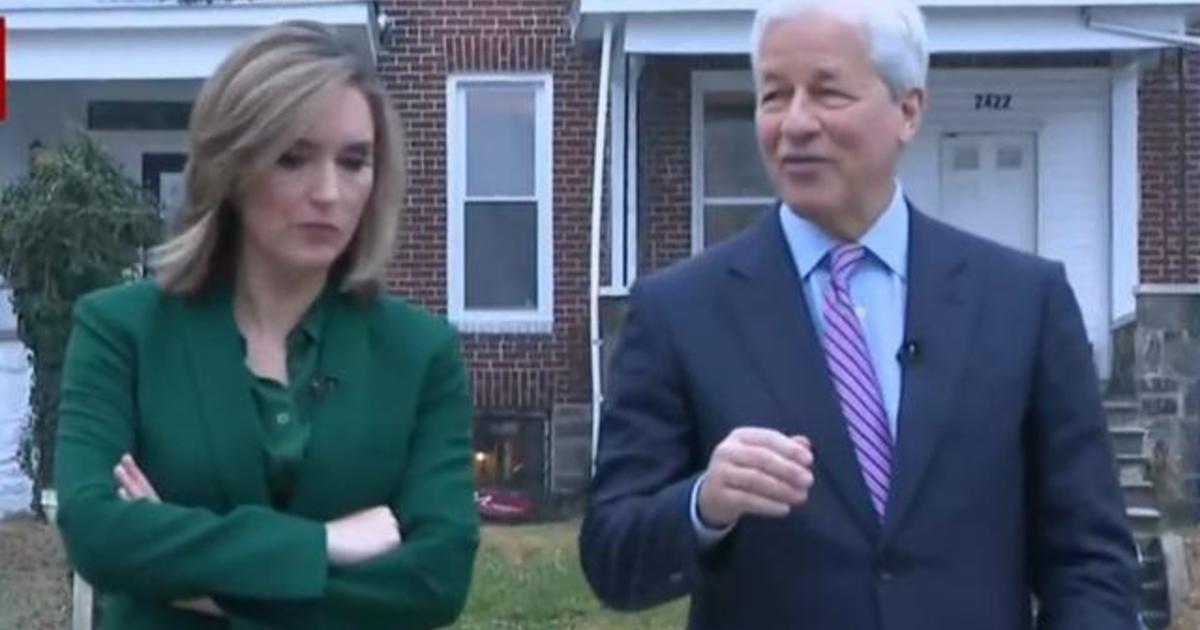Hey there, folks! So, buckle up because we’re diving into something that’s been making waves lately—Dimon warns of recession on TV. Yeah, you heard that right. Jamie Dimon, the big boss at JPMorgan Chase, is ringing the alarm bells, and it’s time we all sit up and take notice. In a world where economic news feels like a rollercoaster ride, this isn’t just another blip on the radar. This is serious stuff, and it could affect your finances in ways you might not even realize yet. So, let’s break it down, shall we?
When Dimon speaks, people listen. And for good reason. He’s not just any CEO; he’s the guy steering one of the biggest financial ships in the global economy. So, when he pops up on TV and says, “Hey, a recession might be coming,” you better believe it’s worth paying attention. But here’s the thing: what does it really mean for you? Is it all doom and gloom, or is there a silver lining somewhere? Stick around, because we’re about to unpack this like a pro.
Before we dive into the nitty-gritty, let’s get one thing straight: a recession isn’t just some abstract concept that happens “out there.” It’s real, and it can hit close to home. From job security to your savings account, the ripple effects can be felt in every corner of your financial life. But don’t panic just yet. Knowledge is power, and by the time you finish reading this, you’ll have a solid game plan to navigate these choppy waters. Ready? Let’s go!
Read also:Dr Phils Joyful Journey As A Grandfather Meet His Four Cherished Grandkids
Who is Jamie Dimon Anyway?
Let’s take a step back for a sec and talk about the guy behind the warning. Jamie Dimon isn’t just another talking head on TV. He’s the chairman and CEO of JPMorgan Chase, one of the largest banks in the world. Think of him as the captain of a financial aircraft carrier. When he talks about a potential recession, people listen because his insights carry weight. After all, he’s been in the game for decades and has seen his fair share of economic ups and downs.
Dimon’s Track Record
Here’s the thing: Dimon isn’t new to this whole “warning about recessions” thing. Back in 2008, during the Great Recession, he was one of the few bankers who actually saw the storm coming. His leadership helped JPMorgan weather the crisis better than many of its competitors. That’s why, when he speaks now, people tend to take it seriously. It’s like having a weatherman who’s been right about hurricanes before—they get your attention, right?
What Exactly is a Recession?
Okay, let’s get down to business. A recession is basically an economic downturn that lasts for more than a few months. It’s like when the economy hits the brakes, and everything slows down. Businesses struggle, unemployment rises, and consumers tighten their belts. But here’s the kicker: not all recessions are created equal. Some are mild, and others are downright brutal. So, what’s Dimon saying this time around?
Signs of a Recession
Dimon’s warnings aren’t coming out of thin air. There are actual signs that point to a potential economic slowdown. For starters, inflation has been on the rise, and central banks around the world are hiking interest rates to try and cool things down. But here’s the thing: raising rates too quickly can sometimes backfire, leading to a recession. It’s a delicate balancing act, and Dimon’s pointing out that the odds aren’t looking great right now.
Why Should You Care?
Alright, let’s cut to the chase. Why should you care about what Dimon says? Well, because it affects your wallet, plain and simple. If a recession hits, you might see your job security take a hit. Companies often cut costs during tough times, and that sometimes means layoffs. Plus, if you’ve got money invested in the stock market, you might see some volatility. It’s not all bad news, though. Recessions can also create opportunities for savvy investors who know how to play their cards right.
How a Recession Could Impact You
Let’s break it down into bite-sized chunks:
Read also:Kelly Ripa And Mark Consuelos Are Making The Most Of Their Summer Break
- Job Market: Companies might freeze hiring or even lay off employees.
- Investments: Stock prices could drop, but that also means buying opportunities.
- Savings: Interest rates might rise, which is good news for savers.
- Real Estate: Housing prices could dip, making it a buyer’s market.
What’s the Data Saying?
Now, let’s talk numbers. According to recent data from the Federal Reserve, the chances of a recession in the next 12 months are higher than they’ve been in years. Inflation is running hot, and consumer confidence is taking a hit. But here’s the thing: data alone doesn’t tell the whole story. It’s about how people and businesses react to these numbers. Dimon’s warning is a wake-up call to start preparing for what might come next.
Key Statistics to Watch
Here are a few stats to keep an eye on:
- Inflation rate: Currently at 8.2% (as of Q3 2023).
- Unemployment rate: Sitting at 3.7% (as of Q3 2023).
- GDP growth: Projected to slow down to 1.5% in 2024.
What Can You Do to Prepare?
So, now that you know the score, what’s your next move? Preparing for a potential recession isn’t about panicking; it’s about being smart. Start by reviewing your finances. Do you have an emergency fund? Are your investments diversified? These are the kinds of questions you need to be asking yourself. Building a financial safety net is key to weathering any economic storm.
Tips for Recessions
Here’s a quick list of things you can do:
- Boost your emergency fund to cover at least six months of expenses.
- Pay down high-interest debt, like credit cards.
- Revisit your investment portfolio and consider rebalancing.
- Look for ways to cut unnecessary expenses and save more.
What Do the Experts Say?
Dimon isn’t the only one sounding the alarm. Economists and analysts around the world are weighing in on the possibility of a recession. Some say it’s inevitable, while others believe we might dodge the bullet. Either way, the consensus is that the economic landscape is uncertain, and it’s wise to prepare for the worst while hoping for the best.
Expert Opinions
For instance, Nobel Prize-winning economist Paul Krugman recently stated that while a recession isn’t guaranteed, the risks are higher than usual. Similarly, the International Monetary Fund has warned that global growth could slow down significantly in the coming years. It’s not all doom and gloom, though. Some experts argue that the economy is resilient and could bounce back quickly if the right policies are in place.
Is There a Silver Lining?
Believe it or not, recessions can have their upsides. For one, they often lead to innovation and new opportunities. Think about it: some of the biggest companies today were born during tough economic times. Recessions can also force businesses to become more efficient and streamline their operations. And for consumers, they can create buying opportunities in sectors like real estate and stocks.
Opportunities in a Recession
Here’s how you can turn a potential downturn into an advantage:
- Invest in undervalued stocks when prices are low.
- Consider purchasing property if housing prices drop.
- Explore new career opportunities or side hustles.
Final Thoughts: What’s Next?
Alright, we’ve covered a lot of ground here. From Dimon’s warnings to what a recession might mean for you, we’ve explored the ins and outs of this economic landscape. So, what’s the takeaway? First and foremost, stay informed. Keep an eye on the news and the numbers. Second, prepare your finances. Build that safety net and make smart decisions about your money. And finally, don’t lose sight of the opportunities that might arise during tough times.
Now, it’s your turn. Got questions or thoughts? Drop a comment below and let’s keep the conversation going. And if you found this article helpful, don’t forget to share it with your friends and family. Knowledge is power, and together, we can navigate whatever comes our way. Cheers, folks!
Table of Contents


